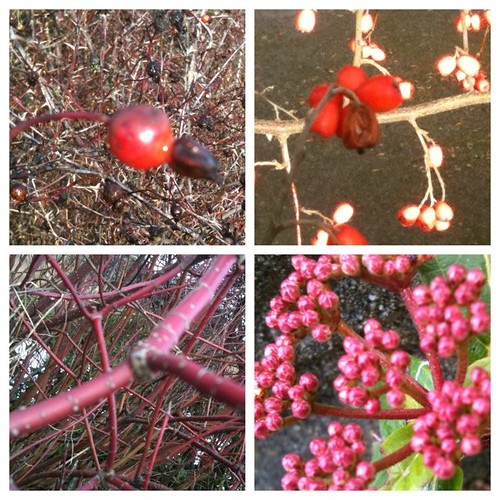Exploring New Olfactory Structures
In my previous article about structure and philosophy, I discussed a few of the most known perfume structures, namely the pyramid, and the more recent linear structures used in most of the mass marketed and largely synthetic perfumes today. I'm stuck in SATC (Seattle airport) waiting for my connection to Sonoma Valley (my first time visit there, just for the weekend, and I'm super excited about this trip!). So I have not only time to kill, but also time to contemplate some themes that have been of interest for me in the past few months, yet I was unable to fully contemplate, articulate or share with you, my dear SmellyBlog readers.
Before sunrise, the plane took off from Vancouver, and descending above the city it was fascinating to watch grids of lights, veins of highways pulsing with early incoming traffic. I was amazed at the laborious nature of mankind, much like a giant ant nest, the city even at such early hours was everything but dormant. And the patterns of movement, light and technology seemed strangely organic in this context.
The plane continued to fly over the Gulf Islands (these are the islands that populate the Georgia Strait). The flight itself is a mere 30 minutes if not less; and there is no time to get tired of it and resort to entertainment or any other distraction. Ahh, I can only wish all my flights were that sweet and short! But back to the beautiful Gulf Island, slightly dusted with a thin layer of white snow, I could not help but return to the theme that have been buzzing in my head for quite some time: the subtle structures of nature, which are seemingly random, chaotic or make little sense when observed from too close. The aerial view reveals more than meets the eye at sea level. And these scattered islands seem to form some kind of a rhythmic pattern.
Fractals are structures that are found in nature, and have what we perceive as fascinating visual patterns that seem random, but in fact follow “inherently unpredictable yet generally deterministic rules based on nonlinear iterative equations”. In the past few months I’ve been wondering about structure in perfumery: is all there is to it is pyramids and straight lines? Could there be a structure that is more organic, flowing and chaotically lively?
Recently, the perfumes I’ve created have become less structured in the pyramid sense of things, but nevertheless have their own internal laws and patterns. After months of searching for these patterns in nature and snapping photos (interestingly, turning them from 3D to 2D actually helps understand the patterns as well), and a standby flight later, despite the months of relative silcence on my journal (aka SmellyBlog), I think I’m arriving at something here.
My perfumes have become more and more like those fractals: they have their own internal laws that connect the different ingredients or materials together. Yet they spiral out rather than build up or drill down to the depth of lingering base notes. Much like the thorns and rosehips in the photo above, or the red branches right under it, there is a pattern of branching out, expanding, reaching out… I’m still in the process or wrapping my head around what is it that I’m doing, and very far from actually being able to explain how this structure works, or why I’m blending the way I am currently, but I think I’m getting somewhere with this and the fractal comparison really helps, because I think that in reality, perfumes are a fractal, and not a pyramid, even if you try really hard to stuff them into such structures. Rather, they are organic, free forms that echo each other and grow into and out of each other while constantly interacting, spiraling… This is definitely going to be continued.



